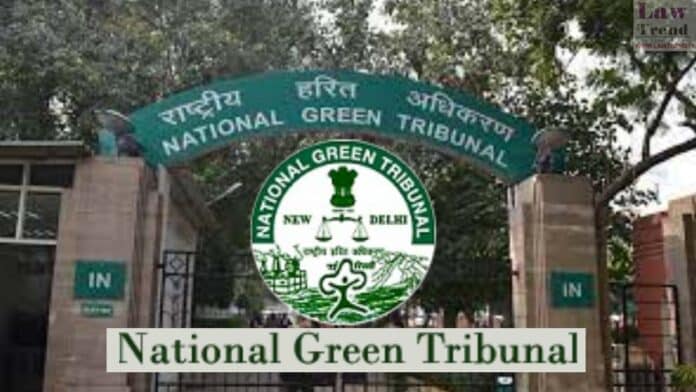The National Green Tribunal has directed the authorities, including the Central Pollution Control Board and the Delhi Pollution Control Committee, to take “stringent measures” to improve the AQI in Delhi-NCR.
Observing that there has been no “visible improvement” in the national capital’s air quality, the green panel directed the authorities concerned to file a fresh action taken report by November 20.
A bench of National Green Tribunal Chairperson Justice Prakash Shrivastava had earlier taken suo motu cognisance of various newspaper reports about Delhi’s worsening air quality and issued notices to the Delhi Pollution Control Committee (DPCC), Central Pollution Control Board (CPCB), Municipal Corporation of Delhi (MCD) and the Commission for Air Quality Management for NCR and Adjoining Areas (CAQM).
The bench, also comprising Justice Sudhir Agarwal and Expert Member A Senthil Vel, noted that reports were filed by the DPCC, CAQM and the Delhi government.
The tribunal, in a recent order, said according to CAQM’s report, the Air Quality Index (AQI) was ‘very poor’ towards the end of October in the wake of highly unfavourable meteorological and climatic conditions because of which restrictions under GRAP Stage II was “invoked proactively” on October 21.
The Centre’s Graded Response Action Plan (GRAP) for Delhi-NCR categorises actions into four stages: Stage I — Poor (AQI 201-300), Stage II — Very Poor (AQI 301-400), Stage III — Severe (AQI 401-450) and Stage IV — Severe Plus (AQI above 450).
An AQI between zero and 50 is considered ‘good’, 51 and 100 ‘satisfactory’, 101 and 200 ‘moderate’, 201 and 300 ‘poor’, 301 and 400 ‘very poor’, 401 and 450 ‘severe’ and above 450 ‘severe plus’.
The bench said, “The CPCB report mentions the various heads under which steps are to be taken to comprehensively manage the ambient air quality in Delhi-NCR which include air quality response system, close monitoring and ground level implementation, measures to control industrial pollution, measures to control pollution from diesel generator sets, measures for control of stubble burning, measures for control of dust emissions from construction and demolition sites and roads, AQI and public awareness and media outreach.”
However, it added that though the CPCB suggested technical interventions to regulate and control pollution, it did not disclose the particulars regarding the extent to which such interventions were applied and what the end result was.
“Let the report in respect of the same be placed on record on or before the next date of hearing by the CPCB,” the bench said.
It also noted the Delhi government’s report, according to which the sources of pollution are vehicular emission, dust from roads and construction and demolition activities, open burning of dry leaves and burning of crop residue.
Also Read
“Though the above agencies in their reports have taken the stand that they are taking steps to control air pollution in Delhi but the ground result is not satisfactory,” the tribunal said.
Noting the AQI during October 20-30, it said the situation, instead of improving, had “gone from bad to worse”.
“Hence, we are of the opinion that the concerned agencies are required to review their strategy and come out with an effective solution to ensure that the AQI in Delhi and NCR is maintained within the permissible limits,” the tribunal said.
“Since no visible improvement in the air quality has been witnessed, therefore, the respondents are directed to take stringent measures so that the air quality index in Delhi and NCR improves,” it added.
It directed the authorities concerned to file a fresh action taken report and listed the matter for further proceedings on November.




